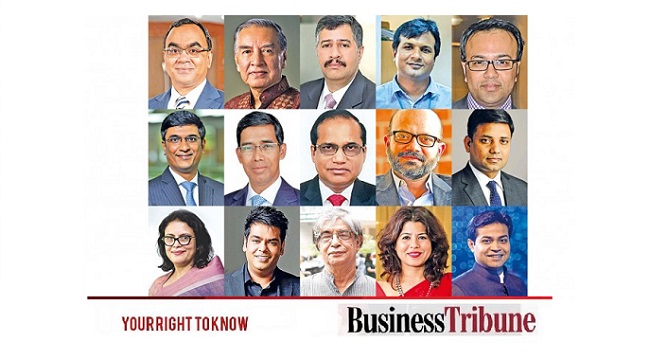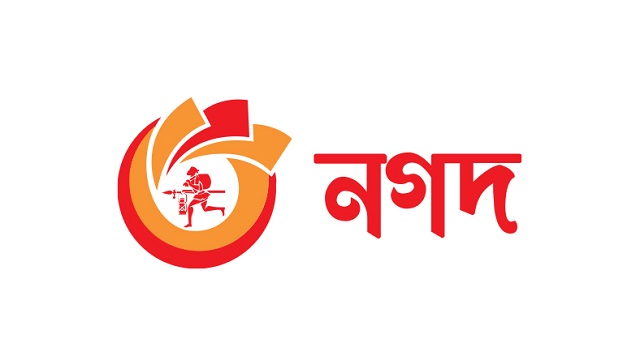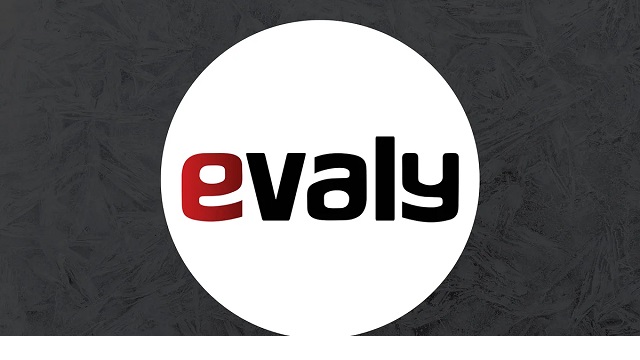Digital Bangladesh 2021: Payment systems and fintech” on September 26, 2020. Here we publish a summary of the discussion.
Digital Bangladesh 2021: Payment systems and fintech
Published:
2021-03-02 04:22:27 BdST
Update:
2025-07-03 12:14:03 BdST

 Bangladesh has made immense progress in digital payments over the last decade or so. From the demand side, about 7.7 percent of the population make payments using mobile wallets. Nonetheless, there is still room for growth. There are a lot of new opportunities in the horizon.
Bangladesh has made immense progress in digital payments over the last decade or so. From the demand side, about 7.7 percent of the population make payments using mobile wallets. Nonetheless, there is still room for growth. There are a lot of new opportunities in the horizon.Payment instruments from the end user's side, acceptance instruments from retailers and businesses, and the trust factor need to all come together and work in cohesion. The government plays a very important role in creating an enabling
 We are currently moving towards a cashless society and the pandemic has further led to an increased reliance on cashless transactions. We must ensure the proper infrastructure for handling this great volume of cash transfer.
We are currently moving towards a cashless society and the pandemic has further led to an increased reliance on cashless transactions. We must ensure the proper infrastructure for handling this great volume of cash transfer.
Transferring cash takes a lot of trust in the system. Many people in the country do not seem to truly trust the digital money transfers. Thus, trust is pivotal.
The security issues surrounding digital money transfers can be fixed through a strong infrastructure that is able to handle the sheer volume of transactions, as well as stand as a pillar of support for the overall financial system.
The legal system also has a role to play in this financial arena. Customers who lose money need to know exactly where their legal rights lie. The sender, receiver and related financial institutions must all be aware of their individual rights when transactions go wrong.
 We should not doubt the need to transition into a cashless society; that is the trend which is rampant worldwide and we must follow suit. We must evaluate how much of a stride we have made in building up a good physical infrastructure. Additionally, the legal infrastructure must also be looked into and analysed.
We should not doubt the need to transition into a cashless society; that is the trend which is rampant worldwide and we must follow suit. We must evaluate how much of a stride we have made in building up a good physical infrastructure. Additionally, the legal infrastructure must also be looked into and analysed.Regarding the physical structure of the financial system, the internet plays an important role. During this pandemic, internet usage has increased by around 40 percent and phone calls have seen a decrease of around 20 percent. Back in January, our bandwidth usage was about 1,000 Gbps. Bangladesh currently has access to 2,100 Gbps bandwidth. This is a vast improvement.
The Info-Sarker Phase 3 programme plans to connect 2,600 unions to the internet. In regards to areas which are out of reach or tough to access, we are looking into providing internet access via the Bangabandhu satellite.
The crisis, in today's world, occurs when internet is not accessible. We started 3G internet in the country, followed by 4G internet in 2018. We are still trying to make 4G available in many rural areas. We are looking forward to the future and it is our dream to see all rural areas of Bangladesh have access to quality internet.
We have begun manufacturing smartphones in the country minimising the costs for the customers as well as creating more employment opportunities. We are also looking into 5G as a successor to 4G.
 A favourable regulatory environment and progressive policies promote innovation and catalyse growth. These are the cornerstones for accelerating digital payments. The government should consider ways to reduce the use of cash while also providing incentives for using digital payment processes. A recent study showed that digital payments could add three percent to the overall GDP of a country. Bangladesh could also introduce schemes by following in the footsteps of other countries, where merchants and customers are provided with incentives for using digital payments.
A favourable regulatory environment and progressive policies promote innovation and catalyse growth. These are the cornerstones for accelerating digital payments. The government should consider ways to reduce the use of cash while also providing incentives for using digital payment processes. A recent study showed that digital payments could add three percent to the overall GDP of a country. Bangladesh could also introduce schemes by following in the footsteps of other countries, where merchants and customers are provided with incentives for using digital payments.There also needs to be an establishment of an acceptance development fund to help expand the digital payment infrastructure in Bangladesh. There are pioneers, such as bKash and Nagad, who are already working in the financial market and who have helped draw more first-time consumers to digital payment services. But digital payments are as good as the number of places where these services are used. Therefore, it should be a concerted effort to enhance the number of merchants, small businesses, and even day-to-day vendors, who accept digital payments. With this, a fund can be created to encourage banks and acquirers to deploy points of sale infrastructure, both physical and digital, in various upazilas, and villages of Bangladesh. This would help achieve the cashless vision for Bangladesh.
Also, worth considering would be the notion of activating a Fintech Regulatory Sandbox. Bangladesh Bank has recently introduced a regulatory innovation office for fintechs under its payment systems department. This has allowed them to better oversee financial providers and tech startups. However, it is important for the government and the regulators to introduce a regulatory sandbox model. A regulatory sandbox is a safe harbour for businesses and fintechs to test innovative products and services. It enables testing to take place in a live market environment while ensuring appropriate safeguards for the same.
 Agent banking started back in 2014. Today, there are millions of customers depositing crores of taka into agent banking. There are about 12,000 agent booths around the country. Work remains to be done in the field of financial literacy. People need to be made more aware of how the financial system works.
Agent banking started back in 2014. Today, there are millions of customers depositing crores of taka into agent banking. There are about 12,000 agent booths around the country. Work remains to be done in the field of financial literacy. People need to be made more aware of how the financial system works.Government's national financial inclusion strategy states that all the citizens will have bank accounts by 2024. People with bank accounts will be able to use the digital financial services. Within five years, financial kiosks will be available all over the country. We are hopeful that such kiosks will allow Bangladeshis to access things like social safety net, remittance, utility payments, insurance, and even micro-credit. We are looking to connect all banks to such kiosks.
If we do not reach people through physical infrastructure, it will be impossible to bring about a cashless society.
 Fintech will go on to drive new business, and data is the new currency. We need to work on blockchain technology. There are a lot of analytics involved in the use of cloud services, which deserves a mention here. Do we have the capacity, in Bangladesh, to invest money in the development of such things? The central bank needs to keep an open mind regarding cloud services.
Fintech will go on to drive new business, and data is the new currency. We need to work on blockchain technology. There are a lot of analytics involved in the use of cloud services, which deserves a mention here. Do we have the capacity, in Bangladesh, to invest money in the development of such things? The central bank needs to keep an open mind regarding cloud services.Banks in Bangladesh have made changes over the past few months, altering issues which could not be changed for a long time. The mindset of the banking system, along with customer needs, is changing.
Mutual Trust Bank Ltd has also made changes with changing times. Our internet banking feature has made it easier for customers to access their personal financial matters. We recently also introduced online on-boarding of customers. An account may be opened after the provision of the basic information. Besides, popularising Bangla QR will allow us to reach the lowest level and help us promote a cashless society.
 We can try imposing some charges on cash transactions to incentivise users to shift to digital payment methods. The fund created through this charge can be distributed among the digital payment users. These incentives have worked to increase cashless payments in the past but unfortunately, when we remove these incentives, the customers shift to cash payment methods.
We can try imposing some charges on cash transactions to incentivise users to shift to digital payment methods. The fund created through this charge can be distributed among the digital payment users. These incentives have worked to increase cashless payments in the past but unfortunately, when we remove these incentives, the customers shift to cash payment methods.Merchant infrastructure is very important. Digital transaction methods need to be accessible in every business in the country including the small businesses in the remote areas.
MFS and ATMs are not helping us further the cause of digital transactions as people are eventually withdrawing cash from their accounts for transactions.
In terms of the legal infrastructure, we are not giving exemplary punishment to the frauds who are causing disruptions in digital transactions. The main reason for the rise of such fraudulence is due to our cash withdrawing practices. If we can minimise cash withdrawals, customer security would significantly increase. e-KYC is very useful for customer identification. Proper use of e-KYC would also decrease fraudulence cases.
 There are two things we need to be mindful of. First there is the customers' fund protection and then there is the financial regulator having full visibility of the fund flow so that issues such as the country's inflation can be properly monitored.
There are two things we need to be mindful of. First there is the customers' fund protection and then there is the financial regulator having full visibility of the fund flow so that issues such as the country's inflation can be properly monitored.In our operation as a regulated service, bKash has been greatly influenced by our daily focus on compliance. Over the years, we have been able to greatly improve our regulation.
The entire cost of MFS is embedded in the cashing out process. We need to minimise this cost, but we also need to keep in mind that a quarter million employment has been created due to this process. This agent network is quite essential.
Lastly, uniformity of service providers is critical. Currently, the services are being provided through various formats. We should think about integration and interoperability.
 Before 2019, MFS was more like a digital courier service which only facilitated money transfers from one place to another. We are still not utilising this service to its full potential.
Before 2019, MFS was more like a digital courier service which only facilitated money transfers from one place to another. We are still not utilising this service to its full potential.COVID-19 has made us truly realise the importance of digital banking. In July, there was a transfer of BDT 62,999 crore using the MFS platform. During a time like this, a 24-hour real time digital banking service would further ease everyone's lives. In future, our attention should be shifted towards digital banking. We are still lagging behind in this sector in comparison to a lot of other countries.
Digital banking would constitute banks without a physical branch and consequently, would have lower overhead costs, allowing us to serve the customers who are not being fully benefitted from traditional banking services or MFS. These customers include the majority of the people working in the informal sector.
Digital banking will not be a competitor to traditional banking but would rather complement it.
 When COVID-19 struck our country, we had conducted a quick survey on 752 factories consisting of a total of around 1.1 million workers. We found that 67 percent of the factories paid by cash and MFS and bank transactions were only five percent while 23 percent of the factories used multiple modes of wage payment.
When COVID-19 struck our country, we had conducted a quick survey on 752 factories consisting of a total of around 1.1 million workers. We found that 67 percent of the factories paid by cash and MFS and bank transactions were only five percent while 23 percent of the factories used multiple modes of wage payment.When the stimulus package was announced, the government was determined that the payment had to be through MFS. Although it was a huge challenge for us, in less than 15 days, we were successful in bringing around 4.1 million workers under digital payment, out of which 2.5 million were BGMEA workers. There were a few hiccups along this road but so far we have not received any major complaints.
ICT ministry and Bangladesh Bank had signed an Interoperable Digital Transaction Platform (IDTP) last December and we are soon to start testing this platform. One challenge associated with this platform is full transparency of an industry about their workers' wages. But this is a challenge we are ready to face.
Contactless payment is definitely the future. To further adopt this strategy, we can try issuing some incentives for the industries and the people alike so that everyone aligns with this.
 Our country already has the basic infrastructure for implementing digital payments but the gap resides in the utilisation of this infrastructure. In the present situation, we have been forced to resort to digital payments and we can clearly see its prevalence in the government. This has definitely had a positive impact and has also further changed the way the ministries viewed digital payments.
Our country already has the basic infrastructure for implementing digital payments but the gap resides in the utilisation of this infrastructure. In the present situation, we have been forced to resort to digital payments and we can clearly see its prevalence in the government. This has definitely had a positive impact and has also further changed the way the ministries viewed digital payments.Our present goal should be to increase the utilisation of this system. We need to look at other countries that have been successful in this endeavour and take inspiration from them. To increase innovation, we need to make way for more fintechs. Bank and MFS partnerships are also essential for progress.
We need to invest a lot more in this sector to increase awareness about the benefits of digital financial service and we need to sustain the growth we have experienced during this pandemic and make sure we do not lose the trust of the customers we have gained throughout this time.
 The Interoperable Digital Payment Platform (IDPP) will help us move towards a cashless society. Bangladesh Bank is involved in the testing process of the platform. This transformational project will have a large-scale impact on every Bangladeshi citizen's life.
The Interoperable Digital Payment Platform (IDPP) will help us move towards a cashless society. Bangladesh Bank is involved in the testing process of the platform. This transformational project will have a large-scale impact on every Bangladeshi citizen's life.We are working on updating our National ICT Policy in 2021. One action item we are focusing on is universal, affordable access to digital devices. Developing fintech will be of no use if last-mile users don't have smartphones. Digital literacy and accessible internet are also action items.
FinTech needs significant policy measures. We are working closely with Bangladesh Bank to ensure that our ICT policy has specific measures with the central bank, National Board of Revenue (NBR), and Bangladesh Securities and Exchange Commission (BSEC). We are also working on a National Startup Policy, which will be incorporated in the National ICT Policy.
 During the last six months in Bangladesh, digital commerce transactions on cards or fintech have doubled, from 15 percent to 30-35 percent. However, in India, more than 75 percent of the population are carrying out digital transactions. We need a robust mechanism in place to scale up our digital transformation.
During the last six months in Bangladesh, digital commerce transactions on cards or fintech have doubled, from 15 percent to 30-35 percent. However, in India, more than 75 percent of the population are carrying out digital transactions. We need a robust mechanism in place to scale up our digital transformation.There should be incentives for the cardholders, fintech players and also the merchants who accept digital payments. Charging people a fee for withdrawing cash from the bank will also encourage people to perform more digital transactions.
In terms of the need for plastic cards for transactions, the world is actually moving toward contactless cards that can be used for tap-and-go transactions.
There is good interoperability between fintech and banks in Bangladesh. The regulators are supportive -- Bangladesh Bank has given us an interoperable QR space called Bangla QR. Bangladesh Bank has also set regulations for White Label ATM and Merchant Acquiring Services (WLAMA) policy and personal retail account policy. The personal retail account policy will help get small merchants on board with their bank accounts. The WLAMA policy will help scale up merchant acceptance.
 Key areas of focus for expanding digital payments include infrastructure, trust and security, and legal and policy framework. Digital payment in Bangladesh, despite rapid advances in recent years, is still in its infancy. The industry, the government and the regulators need to combine their resources to drive this growth further. At Visa, we work as a network alongside banks, fintechs and e-commerce companies amongst others, to drive this mandate. In our experience, the best way to drive this industry forward would be to work through a process of consultative discussions on our shared goals. A task force can be formed with participation from different segments to work together. This will help grow infrastructure and promote participation from various stakeholders.
Key areas of focus for expanding digital payments include infrastructure, trust and security, and legal and policy framework. Digital payment in Bangladesh, despite rapid advances in recent years, is still in its infancy. The industry, the government and the regulators need to combine their resources to drive this growth further. At Visa, we work as a network alongside banks, fintechs and e-commerce companies amongst others, to drive this mandate. In our experience, the best way to drive this industry forward would be to work through a process of consultative discussions on our shared goals. A task force can be formed with participation from different segments to work together. This will help grow infrastructure and promote participation from various stakeholders.We have also learnt how incentives for first time digital payment consumers during the COVID-19 period can be crucial to retain these consumers and ensure sticky behaviour for digital payments. Acceptance development funds can be introduced to incentivise merchants and drive a larger footprint for digital payments in Bangladesh.
Regulations should promote innovations while pricing and technology-related regulations should be at a minimal so as to not stifle new and exciting innovations.
 Given that 2021 marks the 50th year of independence for Bangladesh, we request the government to consider next year as the year of digital payments. It would truly set the tone for the shift to digital payments.
Given that 2021 marks the 50th year of independence for Bangladesh, we request the government to consider next year as the year of digital payments. It would truly set the tone for the shift to digital payments.
Topic:

Banks asked not to open Nagad account without BB permission

Evaly owes Tk403.80 crore to customers and merchants!

Digital Bangladesh 2021: Payment systems and fintech

Moving the stumbling block for business still a long call

Singer offers discount on Eid campaign


Leave your comment here: